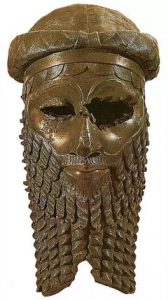This is mark Joseph “young” blog entry #435, on the subject of Hindsight is 2021.
Once again, as we did last year in web log post #371: The Twenty-Twenty Twenty/Twenty and in previous years linked successively back from there, we are recapping everything published in the past year–sort of.

I say “sort of” because once again some material is being omitted. There have been a few hundred posts to the Christian Gamers Guild Bible Study which can be accessed there but aren’t really fully indexed anywhere. Meanwhile, the dozen articles in the Faith in Play series and the similar dozen in the RPG-ology series were just indexed yesterday on the Christian Gamers Guild site, along with everything else published there this year, in 2021 At the Christian Gamers Guild Reviewed, and won’t be repeated here. The RPG-ology series began recovering articles from Game Ideas Unlimited, the lost four-year weekly series at Gaming Outpost, so I republished its debut article as web log post #384: Game Ideas Unlimited Introduction, for the sake of completeness.
I also posted several days a week on my Patreon web log, which announces almost everything I publish elsewhere on the same day it’s published, but again omitting the Bible study posts.
Similarly, we finished posting the novel Re Verse All, featuring Lauren Hastings, Tomiko Takano, and James Beam, from chapter 58 to the end (chapter 156), which are indexed there along with the several behind-the-writings posts on it:
- #373: Nervous Characters covering chapters 55 through 60;
- #376: Characters Arrive covering chapters 61 through 66;
- #379: Character Conundrums covering chapters 67 through 72;
- #381: World Complications covering chapters 73 through 78;
- #383: Character Departures covering chapters 79 through 84;
- #385: Characters Ascend covering chapters 85 through 90;
- #388: Versers Climb covering chapters 91 through 96;
- #390: World Facilities covering chapters 97 through 102;
- #392: Characters Resting covering chapters 103 through 108;
- #395: Character Obstacles covering chapters 109 through 114;
- #397: Verser Challenges covering chapters 115 through 120;
- #401: Characters Hiking covering chapters 121 through 126;
- #403: Versers Innovating covering chapters 127 through 132;
- #405: Versers Converge covering chapters 133 through 138;
- #407: Versers Integrate covering chapters 139 through 144;
- #409: Characters Cooperate covering chapters 145 through 150;
- #411: Quest Concludes covering chapters 151 through 156.
Then there were several related character papers in the Multiverser Novel Support Site, and we then began posting In Verse Proportion, bringing back Joseph Kondor in fantasy Arabia, Bob Slade in industrial age bird world, and Derek Brown on a lost colony spaceship, at this point having reached chapter 39. It included one behind-the-writings web log post, #432: Whole New Worlds, covering the first twenty-one chapters.
Yet there was quite a bit more.
Forgive me for burying the lead, as it were, but just as Why I Believe came out late last year, it was followed this year by the release of The Essential Guide to Time Travel: Temporal Anomalies & Replacement Theory, the long-awaited book on the subject, at the end of June. This summarizing of much of the information on the Temporal Anomalies web site includes updated analyses of four films and a comprehensive presentation of time travel theory. Dimensionfold Publishing interviewed me about it by e-mail, which they published here.
Related to that, a reader sent a letter with comments on Why I Believe, which I edited a bit (removing personal references) and posted as web log post #386: An Unsolicited Private Review.
Now, getting back to other publications, there were another dozen songs published this year:
- Web log post #372: The Song “Heavenly Kingdom”, inspired by the verse about cutting off your hand;
- Web log post #378: The Song “A Song of Joy”, a frenetic bit of musical excitement;
- Web log post #382: The Song “Not Going to Notice”, a bit of serious eschatological humor;
- Web log post #387: The Song “Our God Is Good”, with political overtones;
- Web log post #393: The Song “Why”, one of my rare worship songs;
- Web log post #399: The Song “Look Around You”, an old evangelistic song;
- Web log post #404: The Song “Love’s the Only Command, one of the generally early ones;
- Web log post #408: The Song “Given You My Name”, written for my wife;
- Web log post #412: The Song “When I Think”, which I hope will play at my funeral;
- Web log post #414: The Song “You Should Have Thanked Me”, the title self-explanatory;
- Web log post #428: The Song “To the Victor”, another rare worship song;
- Web log post #433: The Song “From Job”, calling believers to repentance.
And there will be another song published today, but since that’s 2022, we’ll not say more about it yet.
I touched on Christian music otherwise in web log post #374: Christian Instrumental Music, where I raise the question of how to recognize it. My series on contemporary and rock Christian music in the 80s also continued briefly with web log posts #389: Brother John Michael Talbot and #391: Pat Terry. A question asked on a Christian musicians group on Facebook prompted the writing of web log post #396: Why Music Matters.
It was a not insignificant election year in New Jersey, but my first political post, #375: Fixing the Focus, took a more general view, suggesting that Christians need to get our eyes off politics and on faith. Closely following that, #377: A New Tragedy of the Common looked at how online shopping was impacting brick & mortar retail. Another political post with religious connections was #394: Unplanned, about pregnancies. With rules related to COVID in flux, in the late spring I posted web log post #398: New 2021 Face Mask Rules in New Jersey to help a few of my readers. The really political stuff began with #400: New Jersey 2021 Primary and #402: New Jersey 2021 Primary Results, but before the election an issue across the pond in England called for a response in #406: Internet Racism, asking whether online social media criticism of black athletes should be criminal.
Then as the election loomed I offered #427: The New Jersey 2021 Ballot, including a quick look at the public questions, followed a few days later by #430: New Jersey 2021 Tentative Election Results.
I was given a book for Christmas, which I read and reviewed at Goodreads, God Is Disappointed In You, by comic book creator Mark Russell.
Then early in May someone (and I don’t remember who, how, or why) persuaded me to register as a Goodreads author; or maybe I did that earlier, but it was in May that I was persuaded by Goodreads to launch yet another web log, this one entitled The Ides of Mark because it appropriately posted at the middle and end of each month, updating readers on what I had published during that period. In that sense, it is somewhat redundant, as the aforementioned Patreon web log covers that as it happens, and this annual review recaps it all eventually. However, Ides also covers postings in the Bible Study and omits a lot of the personal detail about what I’m doing besides writing which the Patreon blog includes, and gives less information about what I am writing that has not yet been published. This year’s entries have included:
-
#1: New Beginnings, May first through fifteenth, launching and explaining the series;
-
#2: Establishing Patterns, May sixteenth through thirty-first, featuring several web log posts;
-
#3: The Charm, June first through fifteenth, around the primary election;
-
#4: About Time, June sixteenth through thirtieth, announcing the publication of the aforementioned time travel book;
-
#5: Going Somewhen, July first through fifteenth, citing an Amazon review;
-
#6: The First Quarter, July sixteenth through thirty-first, with a scattered batch of articles;
-
#7: Getting Noticed, August first through fifteenth, citing evidence that the blog was being read by someone;
-
#8: Ends and Starts, August sixteenth through thirty-first, with the end of Re Verse All;
-
#9: Quiet on the Surface, September first through fifteenth, including character sheet posts;
-
#10: Before the Storm, September sixteenth through thirtieth, with the remaining character sheets;
-
#11: Looking Busy, October first through fifteenth, with the launch of In Verse Proportion and the beginning of the series on Exodus, listed below;
-
#12: A Frightening Output, October sixteenth through thirty-first, finishing the Exodus series;
-
#13: Slowing Down, November first through fifteenth, including the index of the articles in French translation mentioned below;
-
#14: Holiday Season, November sixteenth through thirtieth, as activity winds down;
-
#15: Not Much Said, December first through fifteenth, continuing the quiet;
-
#16: Years Go By, December sixteenth through thirty-first, with my post-Christmas post.
Not all of that is repeated here, but the bulk of it is. I also answered ten questions there, which you can find here.
Half a decade ago I wrote about those musicians who influenced me; this year it occurred to me to do the same of writers, and so posted #380: Authorial Influences exploring that.
Quite a few Bible questions came up and were answered, beginning with web log post #410: When to Pray, followed by a somewhat technical question about a passage in Matthew, #413: The Abomination of Desolation. Then another reader asked me to address a long and complicated collection of issues in an article that claimed the Exodus, as reported in the book of that name, never happened, and I produced an eleven-part miniseries of web log posts in response:
- The introductory article was #415: Can the Exodus Story Be True?
- It was followed by an answer to the first objection, #416: Does Archaeological Silence Disprove the Exodus?
- Turning to the second objection about whether such a departure could be organized, we offered #417: Is the Beginning of the Exodus Account Implausible?
- The third objection was that given the number of escaping Israelites the line this would have created would have been too long to outrun Pharaoh’s chariots, to which we offered #418: Are There Too Many People Escaping in Exodus?
- The fourth objection was summarized and answered in #419: When Escaping in Exodus, Did the Israelites Have Too Much Luggage?
- In response to the fifth objection we wrote #420: Were the Hygiene Requirements in Exodus Impossible to Observe?
- The sixth objection asked and answered #421: Did Moses Write the Torah?
- For the seventh objection, we addressed the issue of anachronisms, and particularly those related to place names, in #422: Are There Anachronisms in the Torah that Invalidate It?
- The absurdity of the eighth objection is displayed in #423: What Kind of Infrastructure Did the Wandering Israelites Need?
- We looked at the penultimate objection in #424: Did the Earth Really Stop Turning?
- Finally, the point was raised that there were similarities between the life of Moses and earlier accounts of Sargon, which led to the conclusion Do Similarities Between the Accounts of Moses Birth and Certain Myths Make Him a Fictional Character?, which also addresses a few final points.
After that, a Patreon patron asked about horror, so I produced #426: A Christian View of Horror. Comments on a Facebook group page related to one of my colleges concerning the fact that the campus is almost completely obliterated led to the writing of #429: Luther College of the Bible and Liberal Arts, about the legacy such a place has without any memorial markers for the site. I also finished the year last week with a post-Christmas post, #434: Foolish Wisemen, something of a pre-epiphany epiphany.
Finally, I’ve had a long-standing relationship with the people at the French edition of Places to Go, People to Be, under which they have translated and republished quite a few of my articles. I finally took the time to organize these into an index in English, at least for my own reference, which I made available as web log post #431: Mark Joseph Young En Français, with links to such English versions as are available.
The writing of course continues, with more articles already in the queue, more work being done on the next novel, and more posted every week. Thank you for reading, and particularly to those of you who have encouraged me through posts and reposts and likes, and who have supported me through Patreon or PayPal.me and the purchase of my books.









